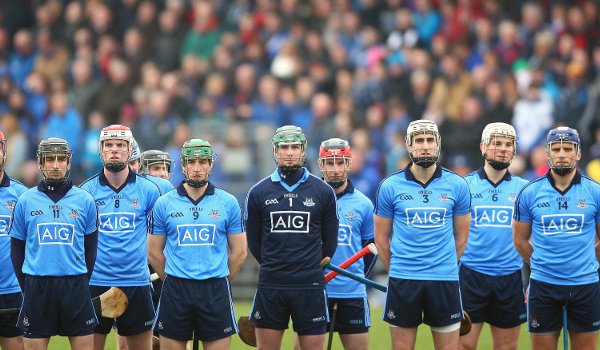Sky will show 14 out of 45 televised championship matches a season.
We don’t see this as the end of sporting life as we know it, more a high-profile step in a series that have taken the Association further from its original ethos than anyone could have imagined 25 years ago.
The transformation in a quarter of a century is startling. It is like coastal erosion, unnoticeable day to day, striking when you see before and after photos set far enough apart.
I went to my first big game in 1990 when there was no sponsorship on jerseys, no corporate boxes, tickets for massive games for less than a fiver, no grants for players, a scarcity of mercenary managers and inter-county backroom teams that comprised of three old men.
On its website the GAA states that all members “play and engage in our games as amateurs” and that the association is “volunteer-led”.
Undoubtedly true in 1990, and undoubtedly bullshit in 2014.
There is a very long list of members and non-members that “engage in our games” and make money, that range from Rupert Murdoch down to journalists such as me, all of us earning varying amounts of cash off the talents of Colm Cooper and Sean Cavanagh.
Not least among them are an army of paid GAA staff, from Peter McKenna brokering the TV deal down to coaches spreading the gospel at provincial level. It includes hundreds of experts, from physios to strength coaches, to psychologists to video analysts.
It includes an amount of club managers who strain the club lotto to the tune of at least €100 a training session.
Those whose motives are pure, from players to club chairmen, who donate their time and talents to create such social good, who are asked to fork out more money more often to see the games that would not exist without them, must feel more and more each year like they are being taken advantage of.
 'In 1990 there was no sponsorship on jerseys'
'In 1990 there was no sponsorship on jerseys'Croke Park does multi-million business with Garth Brooks and TV companies while clubs and county boards must endure horrific financial strife. It is obvious to anyone with eyes that not enough of the GAA’s revenue gets to where it is needed.
Clubs that are feeling the squeeze must compete for the same cash from the same people as county boards trying to fund their amateur teams to a professional standard. These are the real volunteers, and woe betide them if their county buckles under the strain — then they must listen to lectures from the suits that under-fund them, the men whose salaries might go a long way towards fixing the problem.
We are fed guff about the grassroots while the teams those grassroot clubs put out are often left idle when the sun is high.
And we are often encouraged to think of inter-county players with the brains to ask for a fairer shake as some type of danger; some insidious outsiders, when they are really our friends, our clubmates.
It would be unfair to characterise the GAA solely as a business, but it is also unfair to characterise it solely as an entirely idealistic collective, where all involved studiously avoid profit.
What it resembles most closely is a major charity, which could not function without its tens of thousands of volunteers, but where those at the top rake in fat salaries and an array of others inside and outside the organisation use it to generate profit.
In 1990, there was a sense that we were all in it together. In 2014, the majority of members retain that sense of goodwill and camaraderie, but they are not even allowed a say in such vital matters as the TV deal.
If you think of the GAA as a charity, you can’t deny that it achieves a lot of good. You also can’t deny than an astute supporter of it would have serious questions about the direction of an organisation that was, just 25 years ago, amateur in everything including name.

